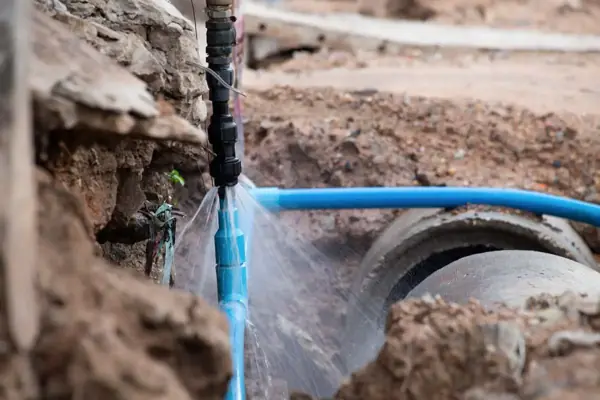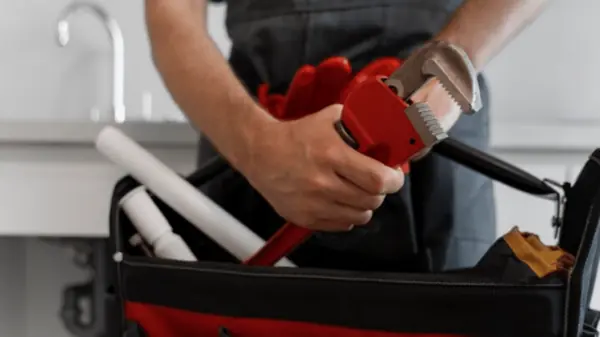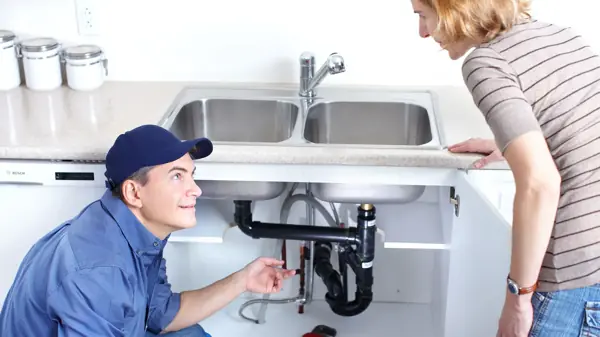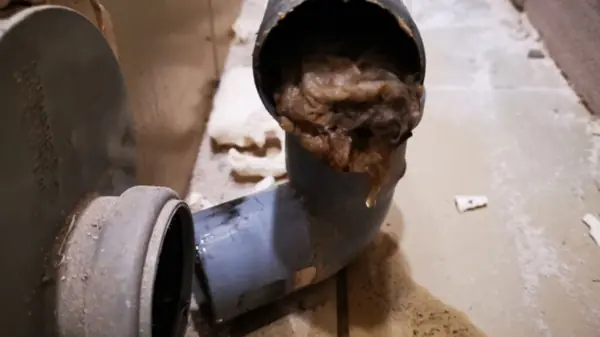A faulty water filtration system does more than just give you bad-tasting water—it can quietly wreak havoc on your home’s structure. Hard water, excessive minerals, and hidden contaminants don’t just affect your plumbing; they can corrode pipes, weaken foundations, and even damage walls over time.
Leaks from poorly filtered or untreated water seep into floors and foundations, creating moisture issues that lead to mold, rot, and costly repairs. Even small water quality problems can turn into big structural headaches if left unchecked. A well-maintained filtration system isn’t just about clean drinking water—it’s a key player in protecting your home’s long-term health.
How does a water filtration system impact the foundation of a home?
A water filtration system can significantly impact the foundation of a home by preventing water-related issues that could lead to structural damage. Here’s how:
- Preventing Water Leaks: The high mineral content in untreated water can cause pipe corrosion and weakness. Failure to fix plumbing leaks might cause water seepage into the foundation. A water filtration system prevents these difficulties by purifying piped water.
- Reducing Moisture-Related Damage: Excessive moisture in a home’s foundation can lead to cracking, shifting, and erosion. Water filtration systems ensure that water used in the home does not carry impurities that could exacerbate moisture problems, helping maintain the foundation’s stability.
- Protecting Basement Areas from Mold Growth: Untreated water with high impurities can cause mold development in basements. Mold flourishes in wet conditions and weakens home structures, especially foundations. Filtration reduces water bacteria, preventing mold growth.
- Preventing Hard Water Buildup: Hard water, rich in calcium and magnesium, can clog plumbing systems and cause leaks. Water might pool around the foundation. A water filtering system softens water, eliminating mineral deposits that damage pipelines and foundations.
A water filtration system plays a crucial role in maintaining the integrity of your home’s foundation by preventing leaks, moisture damage, mold growth, and mineral buildup.
Can poor water quality lead to structural damage in a house?
Yes, poor water quality can lead to structural damage in a house, as untreated or contaminated water can cause issues in plumbing, the foundation, and other home areas. Here’s how poor water quality can contribute to structural damage:
- Corrosion of Pipes: Water with high levels of minerals, such as calcium and magnesium (hard water), can cause corrosion and rust in pipes over time. This can lead to leaks that weaken the plumbing system, potentially causing water damage to walls, floors, and ceilings.
- Foundation Damage: If plumbing leaks are not detected early, water may seep into the foundation, causing it to shift or crack. Excessive moisture around the foundation can also erode the soil beneath the home, weakening its support and causing settling or structural instability.
- Mold and Mildew Growth: Contaminated water or persistent leaks can create damp conditions that promote mold and mildew growth. If left unchecked, these fungi can weaken the structural integrity of walls, floors, and beams, causing long-term damage.
- Mineral Buildup: Hard water can cause mineral deposits to accumulate in appliances and plumbing, leading to clogs, reduced water flow, and leaks. This can increase the risk of water damage and create conditions that damage the structural components of your home.
- Damage to Appliances: Poor water quality can also affect appliances like dishwashers, water heaters, and washing machines, leading to premature failure and potential water leaks, which can cause further structural issues.
Poor water quality can lead to significant structural damage through corrosion, moisture accumulation, and appliance failures. Ensuring clean, filtered water is essential for the long-term health of your home’s infrastructure.
What role does a water filtration system play in preventing plumbing issues?
A water filtration system prevents plumbing issues by improving water quality and protecting components from damage. Here’s how:
- Prevents Mineral Buildup (Hard Water): Water filtration systems help reduce water hardness by removing excess minerals like calcium and magnesium. Hard water can cause mineral buildup in pipes, fixtures, and appliances, leading to clogs, reduced water flow, and even pipe bursts. A filtration system helps soften the water, preventing these problems and extending the life of plumbing.
- Protects Pipes from Corrosion: Untreated water, particularly with high levels of chlorine, chloramine, or acidic properties, can cause corrosion and rust in pipes over time. This corrosion weakens pipes, leading to leaks, cracks, and eventual failure. Filtration systems remove harmful chemicals and impurities, protecting pipes and maintaining their integrity.
- Reduces Scale and Sediment Accumulation: A filtration system removes sediment, dirt, and scale from the water supply, preventing blockages in pipes and faucets. These particles can accumulate over time without filtration, reducing water flow and efficiency.
- Prevents Clogs in Appliances: Filtration systems remove impurities from water that could clog washing machines, dishwashers, and water heaters. The filtration system helps prevent appliance breakdowns and costly repairs by providing clean water.
Water filtration systems play a critical role in preventing plumbing issues by softening water, protecting pipes from corrosion, reducing sediment buildup, and preserving the longevity of household appliances.
How does filtered water help protect a home’s structural integrity?
Filtered water helps protect a home’s structural integrity in several ways by preventing water-related damage and promoting the longevity of plumbing and building components. Here’s how filtered water plays a key role:
- Prevents Corrosion in Plumbing: Filtered water removes harmful chemicals like chlorine, chloramine, and acidic properties that can cause corrosion in metal pipes over time. By reducing these elements, a filtration system helps prevent the degradation of pipes, which can lead to leaks and water damage in walls, ceilings, and flooring.
- Reduces Mineral Buildup in Pipes: Hard water, which contains high levels of minerals like calcium and magnesium, can cause scale buildup in pipes and appliances. This buildup restricts water flow, eventually leading to blockages or pipe ruptures. A water filtration system softens the water, preventing these mineral deposits from forming and protecting the plumbing system.
- Protects Foundation from Water Damage: Leaking pipes caused by corrosion or buildup can lead to water seeping into the home’s foundation. This excess moisture can erode the soil around the foundation, leading to cracks or shifting that compromise the home’s structural integrity.
- Prevents Mold and Mildew Growth: Filtered water reduces the risk of leaks and water damage, which can lead to mold and mildew growth. These fungi thrive in damp environments and can weaken the home’s structural components, particularly in areas like basements and crawl spaces.
Using filtered water helps protect a home’s structural integrity by preventing plumbing issues, minimizing water damage, and preserving the longevity of critical building components.
Discover How Water Filtration Protects Your Home’s Structure!
At Hi-Desert Plumbing, we understand the importance of clean, filtered water for your home’s health. A quality water filtration system can prevent plumbing issues like corrosion, mineral buildup, and sediment accumulation, which can damage pipes and appliances.
By removing harmful chemicals and impurities, filtered water helps protect your plumbing from leaks, clogs, and wear, safeguarding your home’s foundation and overall structural integrity. Ensure your home’s long-term health and efficiency—contact Hi-Desert Plumbing today to learn more about the benefits of water filtration!





